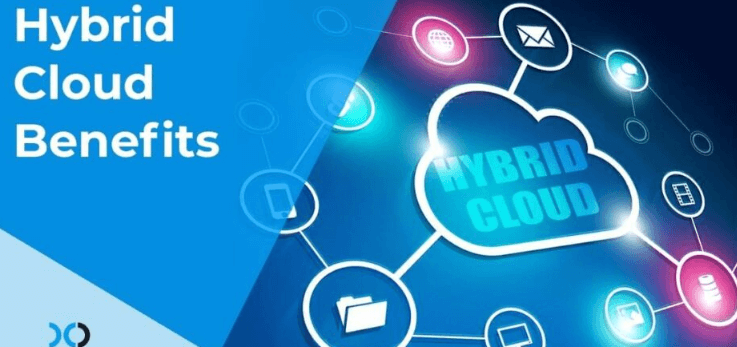The Benefits of Hybrid Cloud Solutions for Businesses

In an increasingly digital landscape, businesses are continually seeking strategies that enhance operational efficiency while maintaining flexibility and security. Hybrid cloud solutions present a compelling option, offering a blend of on-premises infrastructure and cloud resources that can be tailored to meet specific organizational needs. This approach not only optimizes resource management but also allows for scalable growth and improved cost-effectiveness. As we explore the multifaceted advantages of hybrid cloud systems, it becomes evident that the implications for innovation and competitive positioning are significant, prompting a closer examination of how these solutions can redefine business strategies.
Enhanced Flexibility and Scalability
Hybrid cloud solutions offer businesses the ability to scale operations up or down with remarkable agility, effectively meeting fluctuating demands.
This flexibility stems from dynamic resource allocation, enabling organizations to optimize performance by efficiently distributing resources across various environments.
Furthermore, adaptive workload management allows for seamless adjustments to application loads, ensuring that enterprises can maintain operational integrity while responding adeptly to market changes.
Improved Cost Efficiency
The agility provided by hybrid cloud solutions not only enhances operational flexibility but also leads to significant cost efficiencies for businesses.
By enabling precise cloud budgeting and facilitating thorough infrastructure analysis, organizations can allocate resources more effectively.
This strategic approach minimizes unnecessary expenditures, allowing companies to optimize their IT investments while maintaining the freedom to scale operations according to demand and growth trajectories.
Strengthened Security and Compliance
In today’s digital landscape, ensuring robust security and compliance is paramount for businesses operating across multiple environments.
Hybrid cloud solutions provide advanced data encryption and customizable security protocols, enabling organizations to meet stringent regulatory requirements.
This strategic approach not only safeguards sensitive information but also empowers businesses to maintain agility and flexibility while navigating complex compliance landscapes, ultimately fostering a secure operational framework.
Optimized Resource Management
Efficient resource management is crucial for businesses seeking to maximize operational performance and minimize costs.
Hybrid cloud solutions enable strategic data allocation across public and private environments, facilitating optimal workload balancing. This flexibility ensures that resources are utilized efficiently, adapting to fluctuating demands while reducing operational overhead.
Ultimately, businesses can enhance agility and responsiveness, driving innovation and fostering a competitive edge in their markets.
Conclusion
In conclusion, the strategic adoption of hybrid cloud solutions not only revolutionizes operational capabilities but also poses a critical question for businesses: what opportunities may remain untapped in a rapidly evolving technological landscape? As organizations strive to enhance flexibility, improve cost efficiency, and fortify security, the potential for innovation becomes boundless. However, the key lies in the ability to effectively navigate these complex systems, ensuring that the benefits of hybrid cloud solutions are maximized while mitigating risks.




